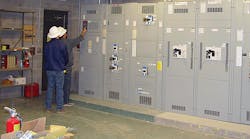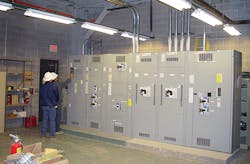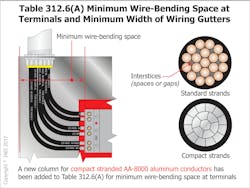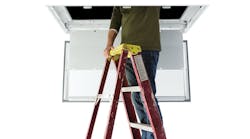In my younger days, I had the opportunity to try my hand as a baseball umpire. It didn’t take long for me to realize that every decision I made had a significant outcome on the game. My interpretation of every pitch — either being a ball or a strike — had an impact on each batter. What I also discovered was that consistency was critical to both teams. If I called a strike on a pitch a half of an inch on the outside of the plate, that was OK if I called that pitch a strike every time. That way, the batter knew they better swing at that pitch the next time they saw it coming down the pike. That type of authority also came with a great deal of responsibility.
I felt that same sense of responsibility when I became an electrical inspector or an authority having jurisdiction (AHJ) after a career as an electrician. Just like an umpire, I learned the key to being an effective inspector was to be consistent in my interpretations. To gain consistent interpretation with surrounding jurisdictions, I knew it was imperative to continue to attend local inspector’s meetings such as the International Association of Electrical Inspectors (IAEI). I had started attending these IAEI meetings as an installer, which led to my first hire as an electrical inspector. At these meetings, as an installer, I could gain the perspective of the local electrical inspectors without the animosity that can sometimes be present on the job site. IAEI provided a “level ground” meeting place for both the installer and inspector.
When I was an installer (electrician), I saw the electrical inspector as the “bad guy,” as many of you might. Once I became an electrical inspector, however, I quickly realized I had not given my local electrical inspector a fair shake. As an instructor of electrical classes today, I hear all kinds of horror stories concerning the local electrical inspector and what a jerk the guy is. My response is to simple say, “Please don’t judge every electrical inspector based on one or two bad experiences with someone who is enforcing ‘his’ code rather than the NEC.”
As an electrical inspector, I came across quite a few unqualified “electricians” who had no business installing any wiring on any job site. How unfair would it have been for me to judge every installer I came across based on those few unqualified installers? Have you ever had a bad meal at a restaurant? Do you judge every restaurant on that one experience? Probably not.
For the most part, electrical inspectors want to be an asset on the job site, not a deterrent. Most embrace the role of an “educator” and willingly share knowledge and information. It benefits the AHJ to have installers in their jurisdiction who are as educated as possible. It is advantageous to the AHJ and the installer if both are on the same page regarding terminology and Code interpretation. If the inspector is calling that green wire an equipment grounding conductor (EGC) — and the installer is seeing that same conductor as a bonding jumper or something else — it is difficult for both to “get on the same page.”
Most electrical inspectors are more than willing to give you a Code reference for a violation. Several jurisdictions require the electrical inspector to site a Code reference for each violation they write up. As the installer, I personally think you are owed a Code reference when you receive a Code violation. If the electrical inspector does not provide a Code reference, there is nothing wrong with asking for said reference. As the installer, I also think you would be wise to adhere to the old saying my grandfather used to say, “You can catch more flies with honey than you can vinegar.” Don’t say,“No one has ever turned me down on that. Where in the world did you dream up that rule?” Try something like, “Wow, that is new to me. Can you show me where in the Code that rule resides, so I won’t make that mistake again and will know the Code like you do?”
The trend in today’s building inspection community is to hire “combination” inspectors — one person who will be responsible for enforcing all disciplines (i.e., electrical, plumbing, mechanical, and building codes) of the built environment. Unless this combination inspector has a background in electrical construction, he or she may not be as qualified as the installer. In this case, you (as the installer) may become the “educator” on the job site. This person who has been given this responsibility typically is as willing to learn as anyone. Tension and animosity are not going to help anyone in this situation. And the next time you’re at your local baseball game, remember that umpire could probably use a little honey rather than more vinegar as well.
Lofland is the director of education, codes and standards for IAEI, Richardson, Texas. He represents IAEI as chairman of NFPA’s Code Making Panel (CMP) 7 for the National Electrical Code (NEC), serves on NFPA’s Electrical Section Executive Committee, and is a member of UL’s Electrical Council. He is also the principal author of several IAEI publications, including IAEI’s NEC Analysis of Changes. Prior to his position with the International Office of IAEI, Lofland spent 16 years with the City of Garland (Texas) serving as their chief electrical inspector. He holds a Master Electrician license from the State of Texas. He can be reached at [email protected].





